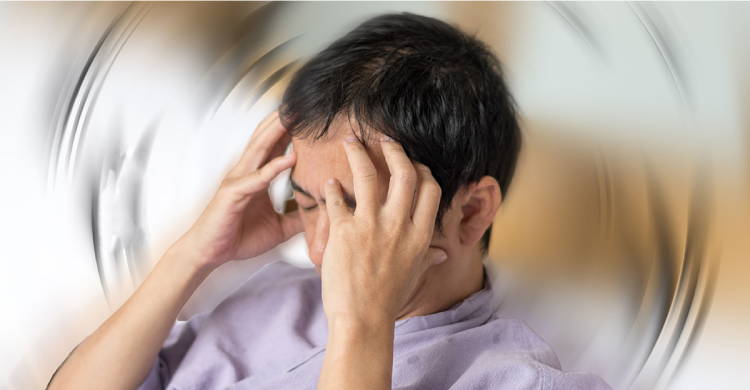
What is Vertigo ?
Vertigo is dizziness that creates the false sense that you or your surroundings are spinning or moving. Vertigo symptoms include dizziness, giddiness, swaying, and falling. The symptoms all point to a disorder of the vestibular system (balance system). It connects the inner ear to the brain, one of the most complicated and delicate systems in the body.
There are many symptoms of vertigo, such as giddiness, dizziness, instability, swaying while walking, falling off sensations, and more. These symptoms indicate a problem with the balance system (vestibular system). The inner ear is one of the most complicated and delicate systems in the body.
Types OF Vertigo
Vertigo is mainly of 2 types, peripheral vertigo, and central vertigo. Peripheral vertigo is the condition in which your inner ear is affected. Central vertigo is the condition in which your brain is affected.
Peripheral vertigo :
Peripheral vertigo is vertigo caused by problems with the structures in the inner ear that are responsible for influencing the body's balance. The result is dizziness or whirling sensations.
Central Vertigo:
Symptoms of central vertigo are caused by illnesses of the central nervous system (CNS). In addition to cranial nerve lesions, vertigo can cause hallucinations of motion.
A hemorrhagic or ischemic injury to the cerebellum (the vestibular nuclei, and their connections within the brain stem) can lead to central vertigo. Other causes include CNS tumors, infection, trauma, and multiple sclerosis.
What are the symptoms?
Motion sickness and vertigo are commonly confused. You could experience a spinning, rocking, or tilting sensation. Vertigo may sometimes combine with additional symptoms such as:
Vomiting and nausea
Balance issues.
Tinnitus.
Sweating
Hearing Loss
Headaches.
Feeling Dizzy
A Sensation Of Ear Fullness
Nystagmus Is An Uncontrollable Side-To-Side Eye Movement.
What are the causes?
Vertigo is mainly caused by inner ear problems. Some of the ear problems that lead to vertigo are labyrinthitis, Meniere’s disease, vestibular neuritis, cholesteatoma, etc. It can also be caused by:
Stroke
Ear surgery
Head injuries
Diabetes
Migraine headaches
Hyperventilation
Ataxia
Brain disease
Multiple sclerosis
Acoustic neuroma
What are the treatment options?
The cause of vertigo will determine how it is treated. The majority of the time, vertigo goes away on its own. This is so that your brain may utilize other balance-preserving systems to compensate, at least in part, for the inner ear abnormalities. Sometimes external medical care is needed to reduce vertigo. Vestibular rehabilitation, medication, and surgery are the prevalent treatments for vertigo. Your doctor will help you choose the best treatment option after examining your condition.
 WhatsApp
WhatsApp